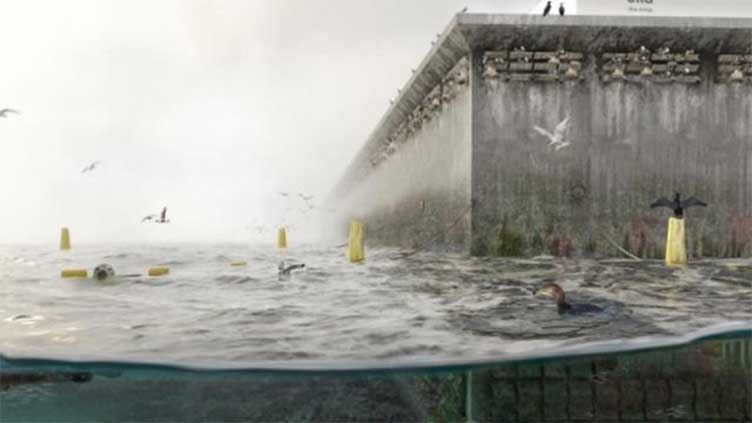World's 1st artificial island to provide wind energy to 3m homes

Technology
The island is being built in the Netherlands
(Web Desk) - The European Investment Bank (EIB) has agreed to provide Elia Transmission Belgium (ETB) a $702 million (€650 million) grant to help it build the world’s first artificial energy island.
The artificial energy island, according to the details provided by Elia, will aim to provide Belgium with 3.5GW of new offshore wind capacity so as to enable its transmission to green energy.
The funds have been allocated for the realization of the first phase of the Princess Elisabeth Island project.
ETB also states that the project is essential for Belgian and European energy transition, “helping to bring large amounts of wind energy from the North Sea to the consumption centers on the mainland.”
According to the Elia Group, the Princess Elisabeth Island will be constructed between 2024 and 2027, at about 27.9 miles (45 km) off the Belgian coast within the Princess Elisabeth wind zone.
The island is one of ETB’s key projects and is the world’s first artificial energy island.
The project aims to integrate 3.5 GW of additional offshore wind capacity into Belgium’s electricity grid, which can power more than three million households.
The Island will reduce the country’s dependence on fossil fuels and provide more affordable green electricity. It will also significantly contribute to the European Union meeting its renewable energy targets and climate-neutrality goal.
According to a press release from the Elia Group, “In addition to unlocking Belgium’s second offshore wind zone, the Princess Elisabeth Zone, the island will also serve as a landing point for additional interconnectors that will link Belgium to its neighbors.”
“Another important element for the EU bank is the project’s innovative nature, featuring hybrid interconnectors and a nature-inclusive design to foster biodiversity and support marine life, making it a benchmark for sustainable energy solutions.”
The first of the island’s caissons, or foundations, are currently being built in Vlissingen (the Netherlands) and will soon be sunk at sea and filled with sand to form the foundations of the island, as per Elia.
The high-voltage infrastructure installed on the island will bundle together the export cables of the Princess Elisabeth Zone wind farms while also serving as a hub for future interconnectors that will link Belgium to the United Kingdom and other countries.
These hybrid interconnectors will enable power exchanges between Belgium and its neighbors whilst also being connected to large offshore wind farms in the North Sea. The latter will eventually supply Belgium with large quantities of renewable energy.


